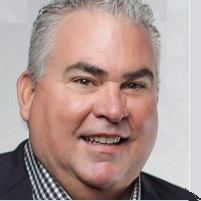If you are familiar with health savings accounts, or HSAs, you probably know that many HSA providers impose minimum cash balances on their account holders. These minimum cash balances mean account holders must maintain a set amount in cash, typically $1,000 or $2,000, before they can invest additional funds.
You may also have heard minimum cash balances described as a way to make sure account holders have sufficient funds on hand in case they are required to pay out of pocket for a large medical expense. However, rather than benefiting account holders, minimum cash balances act as a hidden cost by needlessly holding funds captive and throttling account holders' ability to grow their savings. Benefits professionals promoting HSAs need to be aware of how minimum cash balances can burden account holders and how they can help relieve that pressure.
The problem: Minimum cash balances' hidden cost
If an account holder's HSA provider requires a $2,000 minimum cash balance, that account holder must keep at least $2,000 in cash before they can invest any additional funds. In addition, most HSA providers' interest rates on $2,000 are low, which means our account holder might only earn $5 in interest that year.
However, if that account holder had been free to invest that $2,000, with a 6% annual return they would have had $120 in returns at the end of the year. Our account holder is missing out on $120 of potential investment returns because they are not able to invest their HSA funds as they choose. This loss of potential investment returns is known as an opportunity cost.
But what about maintaining a cash account balance to pay for a sudden medical emergency? It turns out there are not many occasions where medical providers will require people to immediately pay $1,000 or $2,000 at the time of care. This means that if HSA account holders end up needing unforeseen medical care, they should have plenty of time to move assets from investments to cash to pay for those services.
Most HSA providers can transfer assets from investments to cash in a matter of days, allowing account holders to stay on top of any medical charges they might face. And in the rare case where an unexpected medical expense must be paid immediately, HSA account holders can always pay out of pocket and reimburse themselves for that expense from their HSA. HSA account holders should seldom face a situation that necessitates maintaining thousands of dollars in cash.
The solution: Investment-focused HSA providers with no investing restrictions
Unfortunately, minimum cash balances are still a reality for the majority of the HSA industry. However, there are a few forward-thinking providers who allow account holders to start investing from their first dollar instead of imposing required cash balances. These providers understand the value of HSAs as a long-term investment vehicle and remove the barriers that prevent account holders from easily growing their money.
In addition, these providers understand that while using HSA funds to pay for current medical expenses is sometimes necessary, investing those dollars to take advantage of their tax-free growth is the wiser choice. The average couple retiring at age 65 in 2019 is expected to face $387,000 in out-of-pocket medical costs, and having a medical nest egg of tax-free HSA funds to cover those expenses is a very prudent move. Using tax-free HSA dollars to cover retirement healthcare costs instead of paying with taxable 401(k) funds saves retirees big money and lets them stretch their retirement dollars further.
Because of their unparalleled tax advantages, investment-focused HSAs are the hands-down choice for savvy investors looking to maximize tax savings on their retirement medical expenses. Benefits professionals who understand the long-term value of HSAs do well by partnering with providers who do not impose minimum cash balances. By allowing their account holders to invest from their very first dollar with no restrictions on cash balances, these providers maximize account holders' ability to grow their funds and create a happy, healthy future.
 Craig Keohan is chief revenue office at HealthSavings, a health savings account (HSA) provider. He is also the chairman emeritus of the HSA Council at the American Bankers Association. He has given in-person advice regarding HSA improvement to former President George W. Bush and former presidential candidate Newt Gingrich.
Craig Keohan is chief revenue office at HealthSavings, a health savings account (HSA) provider. He is also the chairman emeritus of the HSA Council at the American Bankers Association. He has given in-person advice regarding HSA improvement to former President George W. Bush and former presidential candidate Newt Gingrich.
© 2025 ALM Global, LLC, All Rights Reserved. Request academic re-use from www.copyright.com. All other uses, submit a request to [email protected]. For more information visit Asset & Logo Licensing.








